Adult Track | Autism and Developmental Disabilities Track | Behavioral Medicine and Rehabilitation Neuropsychology Track | Child Track
Ty W. Lostutter, PhD
Training Director
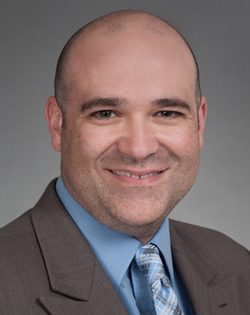 Work
Work
I love being a Clinical Psychologist working with at a large academic medical center because it allows me a variety of career activities within clinical work, research, and administrative duties. I joined the faculty of Department of Psychiatry & Behavioral Sciences since 2009 and my work roles has varied over the years. Currently, I spend a third of my time providing clinical services and supervising psychology residents at Fred Hutchinson Cancer Center; a third of my time conducting research at the Center for the Study of Health & Risk Behaviors, and a third of my time being the Director of the UW School of Medicine’s Psychology Internship Program.
Teach
My teaching philosophy is guided by an eclectic approach influenced by social learning theory, experiential learning, and Socratic principles within a humanistic framework, providing trainees encouragement and the opportunity to grow their research and clinical skills. My approach to teaching was developed from watching my own mentors and teachers, reviewing the literature on teaching, and working with my own mentees over time. My goals are to assess “where a trainee is at” in their knowledge and skill level, collaboratively develop a set of learning goals during our work together and provide the models and opportunities to acquire new learning with ongoing feedback for improvement.
Research
My research interests are broadly defined as the etiology, prevention, and treatment of addictive behaviors and mental health disorders. I am dedicated to developing empirically supported, culturally relevant prevention and treatment programs, with particular emphasis on at-risk individuals with substance use and/or gambling problems. Most of my work has been in development and testing of indicated prevention approaches aimed at youth and young adults, including college and community populations of young adults as well as veterans returning from Iraq and Afghanistan who are pursuing higher education with support from the 9/11 GI Bill. I have also begun to pursue new research interests which complement my current clinical work at Fred Hutchinson Cancer Center (former known as Seattle Cancer Care Alliance, SCCA).
Mentor
I truly love being a mentor to psychology residents in either clinical or research settings. My goal for this teaching is to provide excellent clinical services while training the next generation of healthcare providers. I take my clinical teaching and supervision activities very seriously but try to infuse fun and a passion for life-long learning in our mentor-mentee relationship. My supervision model is best described as a guided-experiential approach to clinical work. Any trainee I work with begins with a self-assessment and discussion of the knowledge and skills they already possess. Collaboratively, we identify gaps in their training or areas that need further strengthening. We discuss their training goals and develop a tailored training plan. Furthermore, trainees are willing to share their expertise and teach me new and exciting ways to conduct clinical or research skills.
Katie Wright, PhD
Assistant Training Director
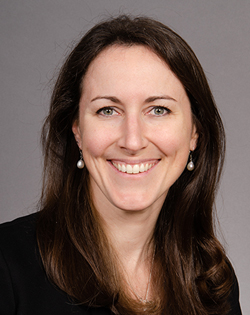 Work
Work
As an assistant professor and clinical psychologist at the University of Washington, my time is divided across clinical service and education, mentorship, administrative tasks, and being the assistant director of the UW School of Medicine’s Psychology Internship Program. On the Inpatient Rehabilitation Program (IPR) at Harborview Medical Center (HMC) and in our Comprehensive Outpatient Rehabilitation Program (CORP), I provide both direct patient care and supervise the clinical work of predoctoral interns. I was particularly excited to start my role in the internship program because not only do I love being involved in clinical training, I am an alumna of this program and credit much of my development as a rehabilitation psychologist to what I learned in my internship year. Additionally, it is an honor to serve the incredibly complex and diverse patient population at HMC, which is both the county hospital and the Level 1 trauma center for the five states in the WWAMI region. Working with medical patients via consults or on IPR is also one of my favorite ways to provide clinical care – with patients who may not be expecting a psychologist or have no experience with mental health services, and hopefully making a difference in their hospitalization, reducing stigma, and increasing their likelihood of seeking psychological services, should they need them in the future.
Teach
Being involved in teaching and training is one of the main reasons I sought a career in academic medicine in general and particularly at UW. My training philosophy is strongly influenced by my work in studying human behavior change, using a humanistic approach and motivational enhancement strategies, as well as a reflective supervision model. I focus on meeting trainees where they are and tailoring training goals accordingly. In addition to case discussion, I want to provide many opportunities for shadowing in both directions, especially when our patient populations are so complex and trainees may not yet have had exposure certain presentations, diagnoses, etc. In addition to our predoctoral psychology residents and postdoctoral fellows, I also enjoy working in a setting where I can assist in clinical training of medical students and residents, as well as other multidisciplinary staff and faculty.
Research
Although not directly involved in research at this point in my career, one of the fun parts of working in an academic medical center is being in a position to collaborate with my colleagues on peer-reviewed articles, book chapters, and presentations. My previous research has been in populations with comorbid substance use and schizophrenia; studying models of addiction and behavior change; engaging in comparative clinical effectiveness research on acute and chronic pain treatments in rehabilitation settings; developing and evaluating a training program for medical residents focused on brief interventions for substance use; and implementing and evaluating a training for a variety of medical professionals to learn Motivational Interviewing strategies to help with patient engagement. Through all my previous roles on multiple collaborative research protocols, I know I love working with multidisciplinary research and clinical teams. Additionally, it’s important for both my clinical work and teaching in a training program with a scientist-practitioner model that we are working alongside colleagues who are committed to developing, evaluating, and practicing accessible, equitable, evidence-based care.
Mentor
Mentoring psychology residents and fellows in their clinical work and professional development is one of my favorite parts of this job. Although I have happily found my professional home in rehabilitation psychology, I strive to meet my mentees where they are in their process of identifying the populations, environments, and activities for which they may discover a passion or want to explore as part of defining their professional goals. Training in psychology is demanding, as are careers in academic medicine, and it’s important to me to help guide my mentees in making their present and future work sustainable. Additionally, fostering the careers of trainees of color and reducing barriers to access for underrepresented groups is critical in academic medicine, where many providers hold privilege and the majority is still overrepresented and noticed by patients and trainees alike. I also want mentorship to be fun and I try to model authenticity and openness. I learn so much from my mentees; while their growth is the priority, I am always impressed with the knowledge and experiences my mentees bring and I value having collaborative, collegial mentor-mentee relationships.
Adam Carmel, PhD
General Adult Track Coordinator
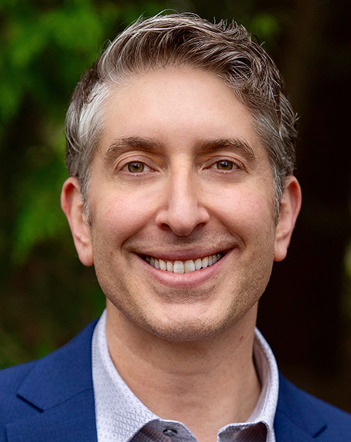 Work
Work
My work activities include a balance of teaching, training, clinical practice, and implementation-related projects. My clinical work takes place within the UWMC OPC clinic where I provide outpatient DBT and DBT Next Steps (an advanced level of DBT treatment focused on increasing employment and self-sufficiency). I am co-director of the Annual Comprehensive DBT Training program in the Department of Psychiatry and Behavioral Sciences at UW.
Teach
One the aspects of being a psychologist in an academic medical center that I enjoy is the range of teaching activities that are available. This includes providing instruction within didactic seminars, as well as demonstrating interventions for residents via direct observation. My approach to clinical supervision includes opportunities for live supervision and receiving real-time feedback (e.g. “bug-in-the-eye” model) as well as reviewing recorded sessions and fidelity monitoring.
Mentor
As a mentor, I try to strike a balance between providing support and guidance for professional growth, (e.g. considering various career paths, applying for post-doctoral fellowships) and attending to issues relevant to personal growth (e.g. balancing career with life and family goals). In our program, psychology residents gain experience providing care within multidisciplinary treatment teams and collaborating with other disciplines outside of psychology, and I enjoy supporting residents in this element of their training.
Research
My research focuses on the dissemination and implementation of empirically supported treatments of suicidal behaviors. I’m particularly interested in developing and evaluating models of training to guide the process of rolling out EBPs in community settings. Recent work has focused on effectiveness studies of DBT Next Steps and evaluating the DBT Next Steps skills curriculum as a standalone group treatment.
Jennifer Gerdts, PhD
Autism and Developmental Disabilities Track Coordinator
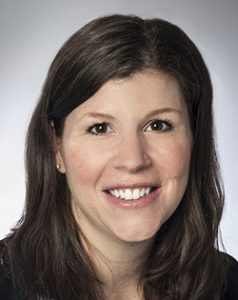 Work
Work
My work spans teaching, clinical, and research in autism spectrum disorder (ASD) and developmental disabilities. I direct the Leadership Education in Neurodevelopmental and Related Disabilities (LEND) interdisciplinary training program, which prepares professionals to assume leadership roles in our field.
The demand for services related to ASD has exceeded the supply of providers throughout the United States, and I am committed both to increasing our workforce and to refining our processes to better serve patients and families throughout the population.
The majority of my direct clinical work takes place at the Seattle Children’s Autism Center where I oversee our diagnostic services, conduct diagnostic evaluations, and co-lead a social skills training program for adolescents.
Teach
I am dedicated to teaching up-to-date, evidence-based information about autism spectrum disorder and developmental disabilities. My teaching activities are broad and range from individual teaching and mentoring of junior clinicians, to direct teaching through lectures in the community and regular UW program coursework, to parent education about ASD, to various forms of educational scholarship through publications and regional and national presentations. Moreover, serving as UW LEND Director has been such a joy! It is so rewarding to expand the impact of training across disciplines and throughout our state.
Research
My recent research has focused on clinical and diagnostic processes in ASD and neurodevelopmental disabilities. Given the lengthy wait that families undergo for diagnostic evaluation, I am dedicated to improving general diagnostic services using evidence-based strategies and studying clinical outcomes of various models of care. I also have a background in clinical phenotypes of genetic changes/mutations related to ASD, and have a longstanding interest in understanding how genetic changes translate to observable phenotypes.
Mentor
My true passion in teaching is the individual mentorship of junior clinicians. I am energized by supporting and watching the next generation of professionals grow and develop over time. In individual supervision, I prioritize developing a trusting relationship with my mentees and my approach to clinical supervision is strengths-based. I also enjoy individualizing training experiences for students. I am cognizant of not putting my own agenda on trainees– we decide jointly what experiences would help them along their path. I am so fortunate to do this job, and to work with such passionate, bright, and committed students. There is good learning to be done on both sides!
Ivan Molton, PhD
Behavioral Medicine and Rehabilitation Neuropsychology Track Co-Coordinator
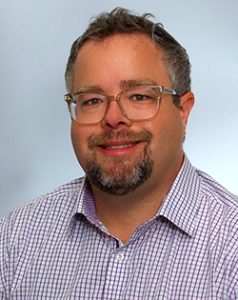 Work
Work
My work is evenly split between clinical service, research, and supervision. On the clinical side, I provide psychological care to patients with acquired disabilities, including spinal cord injury, brain injury, cerebral palsy, and multiple sclerosis. My work there focuses on adjustment to disability and on health behavior change. I also get to supervise residents and fellows during their rotations at the UW Medical Center.
Teach
Although I don’t teach formal courses, one of the best parts of my job is working with psychology residents and fellows, who come with a great deal of intellectual curiosity and a desire to learn. Mostly I try to give them the resources and information they need, without getting in their way.
Research
Like most of us in psychology, I’m interested in almost everything. Most of my work has focused on the intersection of gerontology and rehabilitation, and in looking at ways to improve healthy aging for people with mobility limitations. I also do some work in psychological approaches to manage chronic symptoms like pain and fatigue. Most recently, I’m looking at a brief psychological intervention to improve a person’s ability to cope with medical uncertainty. Over the years many residents and fellows have worked with our research team on data analysis and manuscripts.
Mentor
As a department, our goal is to mentor our trainees wherever they need it. For some trainees, that’s about developing new research skills, and for others it’s about getting training in a particular clinical approach or in working with a particular population. We also work closely with our trainees in professional development and the all-important work/life balance. I like to think our approach to mentorship is equitable and collegial, and never hierarchical.
Jeff Sherman, PhD
Behavioral Medicine and Rehabilitation Neuropsychology Track Co-Coordinator
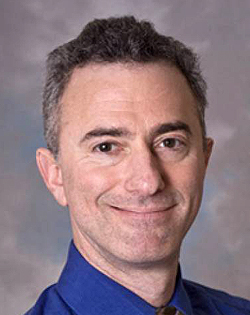 Work
Work
I try to balance my work between clinical service, supervision, and administrative activities. I spend my time at Harborview Medical Center in both inpatient and outpatient settings. I work mainly with people who have experienced severe traumas leading to injuries like spinal cord injuries, traumatic brain injuries, amputation, stroke and other disabling conditions.
In addition to Co-Coordinating the BMED and RN tracks, I direct our Rehabilitation Psychology Consultation Service and our Clinical Rehabilitation Psychology Fellowship Program. I was introduced to rehabilitation psychology and inpatient consultation services by Dr. David Patterson on my internship here in 1998. I enjoyed the fast pace, multidisciplinary work and the creativity of consultation work so much that I returned to HMC and the consultation service in 2006.
Teach
Most of my teaching takes place in individual and group supervision, at bedside and hallways on the inpatient units. I am committed to providing scheduled, sit down supervision and have an open door policy because I believe that the best learning occurs in real time. I guest lecture and present at staff in-services, continuing education and conferences. I see supervision as a developmental process beginning with the resident shadowing me. The rotation and the year are a developmental process and supervision should gradually become more consultative as the rotation and year progress. The treatment approaches that guide my work include CBT, ACT and Humanistic Psychotherapy.
Research
I am not actively involved in research and publication. Instead, I have been active as the PI of the Graduate Psychology Education Grant. This grant seeks to increase the number of psychologists trained in working with underserved populations. I have been actively involved in advocacy at the state and federal level, working on attaining support for ongoing funding for psychology training, student loan forgiveness and parity for mental health reimbursement.
Mentor
The challenge for all of us is feeling like what we do means something. I try to live this way, treat my patients this way and help my mentees find their way.
Michelle Kuhn, PhD
General Child Track Coordinator
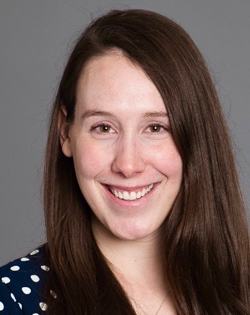 Work
Work
I work out of our Magnuson building, which is the home of our outpatient mental health programs, and just down the street from the main hospital. My clinical work is focused on supporting children and teens with prenatal substance exposure, complex developmental trauma, and fetal alcohol spectrum disorders (FASD) in the Specialized Neurodevelopmental Assessment and Consultation Service (SNACS Clinic). Our clinic uses therapeutic assessment, consultation, and parent training to help caregivers, providers, and schools fully understand a patient’s developmental and mental health needs and develop supportive accommodations and behavioral strategies to make developmental tasks and self-regulation easier. Our clinic is housed in Seattle Children’s Autism Center but sees a wide range of patients from the Psychiatry and Behavioral Medicine Unit (PBMU), community referrals, and outpatient clinics including the Behavior and Attention Management (BAM) clinic with diagnostic and developmental profiles across the neurodevelopmental and mental health spectra.
Teach
Teaching (and the opportunity to consistently learn) is the primary reason that I chose a career in an academic setting. I get the chance to guest lecture to undergrads and medical students as well as our residents and fellows, develop community trainings, and speak at regional and national meetings about prenatal exposures and FASD. I am especially passionate about teaching pediatric medical and mental health professionals about ways to reduce perpetuation of stigma and bias associated with prenatal substance exposures. Our clinic also has a structured didactic curriculum that we explore through team retreats (with coffee!). Retreats and the conversations they prompt are some of my favorite days in clinic as we get to review recent literature and think about how to improve our clinical practice and professional ways of being.
Research
I research stigma, screening and diagnostic methods, and parent training interventions for children with prenatal substance exposure and FASD. We are currently evaluating the efficacy of the SNACS clinic model in meeting family needs and improving caregiver advocacy as well as gathering efficacy data on a parent training program we have adapted for caregivers of children with early adversity. Our small Early Adversity Lab is also developing best practice recommendations for stigma and bias reduction when conducting screening and psychological testing in children and youth with prenatal substance exposure.
Mentor
It is an honor and a joy to participate in training the developing psychologists who will soon be our colleagues. I work hard to create collaborative mentoring environments where all teach and all learn, supporting students to share their areas of strength and to identify and seek support for areas of growth. I feel privileged to work with children and youth, as I am constantly reminded that we all have the opportunity to grow, learn, and seek support throughout our lives and careers, with graduate training being just one phase in our developmental journey. I strive to reduce barriers to access for trainees of color, neurodiverse trainees, and other underrepresented groups in our field and to implement antiracist, developmental, and culturally relevant approaches to all mentoring relationships.
Last Modified: March 7, 2025